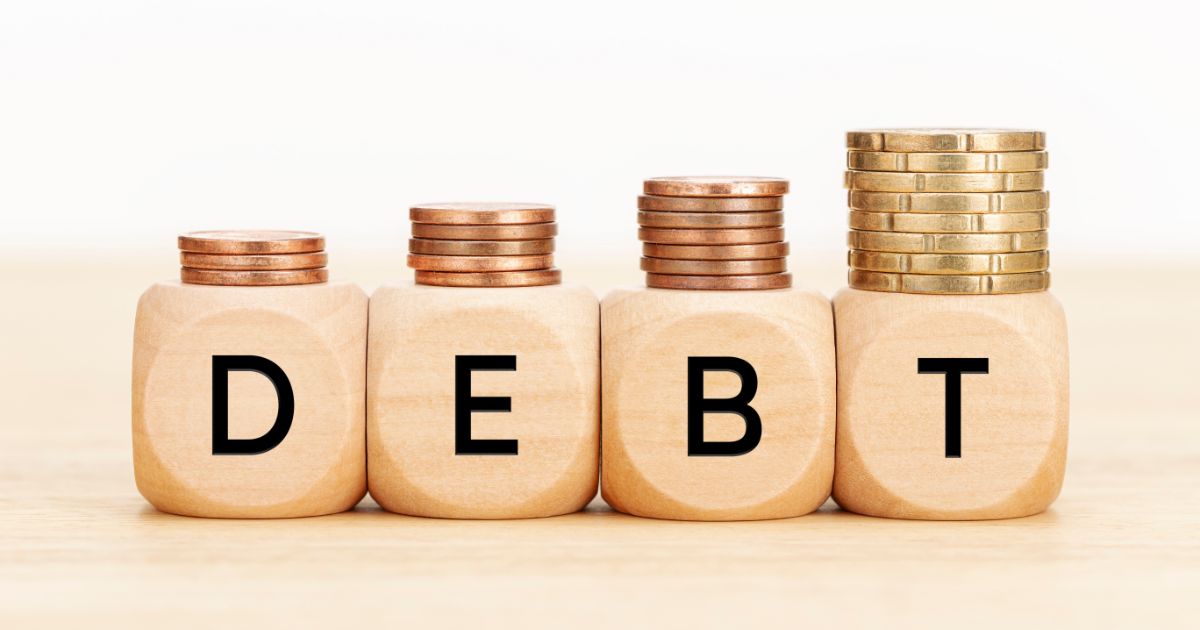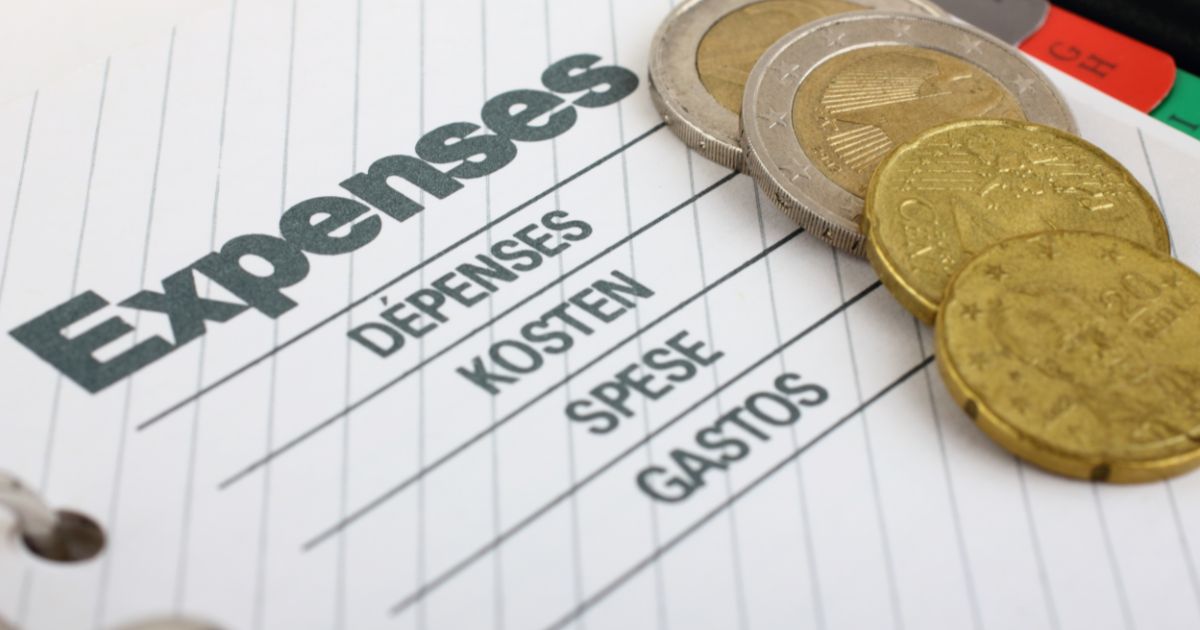7 Money Management Tips for Improving Your Personal Finance
Do you ever feel like your money just vanishes without a trace? You're not alone. Many people struggle to manage their finances effectively. But fret no more! Taking control of your personal finances is an empowering journey, and it all starts with smart money management.
In this article, we explore seven practical and actionable tips that will empower you to take control of your finances and pave the way toward financial success. From budgeting and saving strategies to debt management and investment insights, these tips will provide you with a solid foundation for improving your financial health and securing your financial future. Join us on this journey to discover how you can enhance your money management skills and achieve greater financial freedom.
Create a Budget

Creating a budget is the cornerstone of a healthy financial future, and it's easier than you might think. Here’s a structured approach to help you create a budget that aligns with your financial goals and lifestyle:
Step 1: Assess Your Income
Firstly, calculate your total income including all sources such as salary, freelance work, rental income, etc. Then, subtract taxes and other deductions to determine your net monthly income.
Step 2: Track Your Expenses
List your fixed monthly expenses like rent/mortgage, utilities, insurance, and any recurring payments. Identify variable expenses such as groceries, entertainment, dining out, etc., which may fluctuate from month to month.
Step 3: Set Financial Goals
Establish short-term and long-term financial goals to guide your budget. Short-term goals could be paying off credit card debt or saving for a vacation, while long-term goals might include buying a home or saving for retirement.
Step 4: Allocate Your Income
Prioritize essential expenses like housing, utilities, transportation, and groceries by allocating a portion of your income toward these categories. Allocate another portion towards savings, emergency funds, and debt repayment. Lastly, allocate funds for discretionary spending, for instance, entertainment and personal hobbies.
Step 5: Use Budgeting Tools and Apps
Utilize digital tools and apps like Mint, YNAB (You Need A Budget), or personal finance software to automatically track income, expenses, and savings goals. Alternatively, create a simple spreadsheet using Excel or Google Sheets to manually track and adjust your budget.
Step 6: Monitor and Adjust Regularly
Review your budget monthly by comparing actual spending with your budgeted amounts. Identify areas where adjustments are needed based on changes in income or expenses, and align your spending with your financial goals.
Step 7: Stay Committed and Be Flexible
Stay disciplined by adhering to your budget, avoiding impulse purchases, and prioritizing financial goals. Remain flexible by allowing room for unexpected expenses or adjustments in your financial situation.
Build an Emergency Fund
An emergency fund serves as a financial safety net, providing you with a cushion to cover unexpected expenses and financial emergencies without resorting to high-interest debt or disrupting your long-term financial goals.
Steps to Build an Emergency Fund
First, determine your goal. A common recommendation is to save 3 to 6 months' worth of living expenses. If your job is unstable or you have dependents, let's aim for the higher end of this range.
Next, assess your current financial situation. Review your budget to identify how much you can set aside each month. Look for non-essential expenses that can be reduced or eliminated to free up more money for savings.
Then, create a savings plan. Set a realistic monthly savings goal based on your budget and set up automatic transfers from your checking account to your savings account to ensure consistency. Choose the right savings account, such as a high-yield savings account, to earn more interest on your savings. Note that the account is easily accessible in case of emergencies but not too easy to dip into for non-emergency expenses.
Start small and build gradually. Aim to save $500 to $1,000 initially to cover small, unexpected expenses like car repairs or medical bills. Continue regularly saving until you reach your overall savings target.
Monitor and adjust your plan. Regularly review your savings balance and adjust your contributions if needed. Re-evaluate your savings target if your expenses increase or decrease significantly.
Stay disciplined. Avoid temptations and keep your emergency fund separate from your regular spending account to avoid using it for non-emergencies. Building an emergency fund takes time and discipline, but the peace of mind it gives is well worth the effort.
Manage Debt Wisely

Taking control of your debt not only reduces financial stress but also sets you on a path to a more secure financial future. Here are some key strategies to help you manage your debt effectively:
First, understand your debt. Make a list of all your debts, including the amounts, interest rates, and minimum monthly payments. It will give you a clear picture of your financial situation. Knowing what you owe and to whom is the first step in creating a plan to pay it off.
Prioritize high-interest debt. Focus on paying off high-interest debt first, such as credit card debt. You will save money on interest in the long run.
Make more than minimum payments. Whenever possible, pay more than the minimum payment on your debts. It will reduce the principal balance faster and save you money on interest. Even small extra payments can significantly shorten the time it takes to pay off your debt.
Avoid taking on new debt. Try to limit new debt while you're working on paying off existing debt. Avoid unnecessary expenses and focus on living within your means.
Negotiate with creditors. If you're struggling to make payments, contact your creditors to discuss potential options, for example, lower interest rates or extended payment plans. Creditors are often willing to work with you if they see you are making an effort to pay off your debt.
Seek professional advice. If you're overwhelmed by debt, consider consulting a financial advisor or credit counselor. Professional advice can offer you new strategies and insights that you might not have considered.
Save and Invest for the Future
Investing in the future will set you up for long-term success and towards financial independence. Financial independence is the dream of many people, which frees up time that you would otherwise spend working. This extra time can be invested in personal development, learning new skills, or pursuing further education.
Invest Wisely
Investing benefits your money grow over time. Start by educating yourself about different investment options, such as stocks, bonds, mutual funds, and real estate. Consider working with a financial advisor to develop an investment strategy that aligns with your risk tolerance and financial goals. Diversified investments can submit higher returns, so you can easily build a solid financial foundation.
Diversify Your Investments
Diversification reduces risk by spreading your investments across different asset classes. This strategy protects your portfolio from market volatility and leads you on the way to growing your wealth. A diversified portfolio is less likely to suffer significant losses and can offer more consistent returns.
Contribute to Retirement Accounts
Take advantage of retirement accounts like 401(k)s and IRAs. These accounts offer tax benefits, and at the same time, you can save for the future. If your employer offers a 401(k) match, contribute enough to maximize this benefit—it’s essentially free money for your retirement. Consistently contributing to retirement accounts can support you build a comfortable nest egg for your golden years.
Monitor and Adjust Your Portfolio
Regularly review your investment portfolio to ensure it aligns with your goals and risk tolerance. Make adjustments as needed based on changes in your financial situation or market conditions. Rebalancing your portfolio assists in maintaining the desired level of risk and helps your investments continue to perform well.
Live Below Your Means
Let's adopt a lifestyle that you enable to save and invest a significant portion of your income. Avoid lifestyle inflation, which can occur when your spending increases as your income grows. Living below your means results in having more money to put towards your financial goals. Practicing frugality and mindful spending makes you accumulate wealth more effectively.
Educate Yourself
Continuously educate yourself about personal finance and investing. Read books, attend seminars, and follow reputable financial blogs and podcasts. The more you know, the better equipped you’ll be to make informed decisions about your money. Staying informed about financial trends and strategies can help you optimize your savings and investments.
Cut Unnecessary Expenses

Reducing your spending allows you to allocate more funds towards your financial goals, such as debt repayment, investments, and building an emergency fund. Making conscious choices about your spending can lead to long-term economic stability and peace of mind.
Differentiate Between Needs and Wants
Categorize your expenses into needs (essential items like rent, utilities, and groceries) and wants (non-essential items like dining out, entertainment, and luxury purchases). Focus on reducing or eliminating spending on intends to save more money. This distinction aids in prioritizing spending on essentials while cutting back on non-essential items that can quickly add up.
Cut Subscription Services
Review your subscription services, such as streaming platforms, magazines, and gym memberships. Cancel any that you don’t use regularly or can live without. These small, recurring expenses can add up significantly over time. By evaluating the value you get from each subscription, you can decide which ones are worth keeping.
Cook at Home
Reduce the frequency of dining out and ordering takeout. Cooking meals at home is generally much cheaper and healthier. Plan your meals and buy groceries in bulk to save even more. Meal planning can also reduce food waste and you have nutritious meals throughout the week.
Limit Impulse Purchases
Avoid making impulsive purchases by giving yourself a cooling-off period. If you see something you want to buy, wait 24 hours before purchasing. This tip creates time for you to determine if it’s something you truly need or just a momentary desire. Practice can prevent buyer's remorse and you will make more thoughtful purchasing decisions.
Use Public Transportation
If possible, use public transportation, carpool, or bike to work instead of driving. This can save you money on fuel, parking, and vehicle maintenance. Additionally, it can decrease your carbon footprint and contribute to a healthier lifestyle.
Shop Smart
Look for sales, use coupons, and buy generic brands instead of name brands. Additionally, avoid shopping when you’re emotional or stressed, as this can lead to unnecessary spending. Smart shopping habits can construct significant savings over time and aid you stretch your budget further.
Reduce Utility Bills
Be mindful of your energy consumption. Turn off lights when not in use, unplug electronics, and use energy-efficient appliances. These small changes have significant savings on your utility bills. Investing in energy-efficient devices and adopting energy-saving practices can lower your monthly expenses.
Plan for Major Purchases
Planning for major purchases permits you to avoid debt, make informed decisions, and warrant that large expenditures do not disrupt your financial stability.
Set Clear Goals
Identify the major purchases you want to make in the near or distant future, such as buying a home, a car, or funding a child’s education. Set clear, specific goals for each purchase, including the estimated cost and the timeframe in which you aim to make the purchase.
Research and Compare
Conduct thorough research on the items you plan to buy. Compare different options, brands, models, and prices. Look for reviews and ratings to get the best value for your money. Being well-informed aids you make better purchasing decisions and avoid buyer’s remorse.
Create a Savings Plan
Create a dedicated savings plan once you have an estimated cost for your major purchase. Determine how much you need to save each month to reach your goal within the desired timeframe. Consider setting up a separate savings account specifically for this purpose to keep your funds organized and track your progress.
Prioritize Your Purchases
If you have multiple major purchases in mind, prioritize them based on their importance and urgency. Focus on saving for one purchase at a time to avoid spreading your resources too thin.
Review and Adjust Regularly

Regularly reviewing and adjusting your financial plan is essential for maintaining and improving your personal finances.
Set a Schedule for Regular Reviews
Establish a routine for reviewing your finances monthly, quarterly, or annually. Choose a schedule that works best for you and stick to it consistently.
Analyze Your Budget
Examine your budget during each review. Compare your actual spending to your planned budget and identify any discrepancies. Look for patterns in overspending or underspending and adjust your budget accordingly.
Track Your Progress Towards Goals
Review your progress towards your financial goals, like saving for retirement, buying a home, or paying off debt. Assess whether you are on track to meet your targets within the desired timeframe. If you are falling behind, identify the reasons and adjust your plan to get back on track.
Update Your Financial Goals
Life circumstances and priorities change over time. Regularly update your financial goals to reflect these changes. For example, you might need to adjust your savings goals if you have a new child or plan to pursue further education. Keeping your goals makes certain that your financial plan remains relevant.
Adjust for Major Life Events
Significant life events, for example, getting married, having a child, changing jobs, or buying a home, can impact your finances. Adjust your financial plan to account for these events. For example, you might need to increase your savings for a child's education or update your insurance coverage after buying a home.
Conclusion
7 Money Management Tips for Improving Your Personal Finance provide a solid foundation for making informed financial decisions, allowing you to reach your financial goals and enjoy greater peace of mind. Remember, improving your finances is a continuous process that requires commitment, discipline, and regular assessment. By staying proactive and disciplined, you can create a secure financial future for yourself and your family.
Money management is not an easy skill to master, so taking relevant courses will boost this skill significantly. Join Skilltrans courses today to enjoy the most preferential prices.

Meet Hoang Duyen, an experienced SEO Specialist with a proven track record in driving organic growth and boosting online visibility. She has honed her skills in keyword research, on-page optimization, and technical SEO. Her expertise lies in crafting data-driven strategies that not only improve search engine rankings but also deliver tangible results for businesses.



